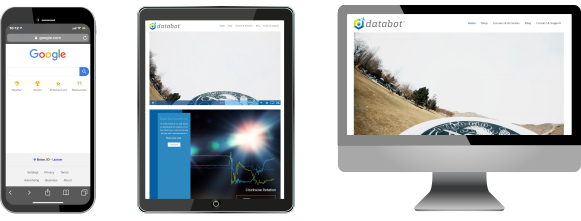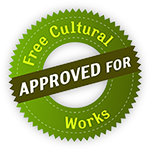
Intro to Arduino
PDQ1 |
Let’s get WEIRD
Overview
Grades:
Time:
Subject:
5-7
5-15 minutes
Computer Science, Electronics
Hang onto your hats coding cowboys, we’re abut to get way weird. This PDQ is simple and fun, you’re going to do some surfing on the web and check out the Arduino community at it’s strangest.
Background
Arduino is an Open Source Hardware andSoftware platform that enables creators, inventors, students and just about anyone to learn basic electronics and coding to make projects.
Objectives
Understand & Recognize:
- “Arduino” as a hardware and software platform for making projects.
- “Open Source” as a model of creating and sharing information.
- “Input” and “output” in both hardware and software based on looking at Arduino projects.
- “Community” in the sense of people connected through a common interest such as making cool projects with Arduino.
- “Computer programming” or “coding” means writing instructions for the hardware to follow.
What You'll Need

The activities in this module only require you to have some kind of Internet connected device and a browser! Chromebook, smart phone, supercomputer – whatever you have on hand to search the Internet is all you need!
Important Terms
Take the time to know these important terms that will help make you a Master Maker and Arduino Artist! These are all mentioned in the video so watch it again if it helps you remember.
Open Source: A model of sharing inventions and information for others to use, improve and share again.
Hardware: The”physical” part of a computer or device. If you can thump it on a table, it’s probably hardware.
Software: The computer program or “instructions you write” for the hardware. It’s not something you can thump on the table, but the hardware is worthless without it.
Processor: The brains of your hardware that takes the instructions you write and executes them.
Arduino Uno: One of the many Arduino boards in the Arduino family and probably the most used.
Input: Things that go “into” a computing system are input. When you type on your phone you are “inputting” information.
Output: Something that come out of. your computing system, like the display on a smartphone, is “output.”
Prep
Read Overview, watch video and make sure you have an Internet connected device and Internet browser.
PDQ 1 - Let's Get Weird!
To get a real flavor for some of the things that can be done with Arduino, do an Internet search for Arduino projects. You can add in adjectives like strange, weird, fun or oddball for example and you will be amazed at what people are creating.
Now:
- Take note of the types of sensors (Input) that people are using in their projects and what kinds of physical actions, like motors (Output) are taking place.
- Modify your search to specify an Arduino Uno – this is the most popular microcontroller in the Arduino family. It’s very easy to start your explorations with an Uno when you’re ready to jump into the creator pond.
- Look for the Processor on the Arduino project board when you are studying the project. Can you spot it?
- Go ahead and do some searching, watch some videos and you will soon see just how versatile Arduino can
Educator Info
Educator Info
- Recognize the term “Arduino” as a hardware and software platform for making projects.
- Understand the concept of “community” in the sense of people connected through a common interest such as making cool projects with Arduino.
- Understand the concept of “Open Source” as a model of creating and sharing information.
- Recognize the concepts of “input” and “output” in both hardware and software based on looking at Arduino projects.
- Understand “computer programming” or “coding” means writing instructions for hardware to follow.
- Definitely do some searching and review of your own prior to having students do this activity. Depending on your location’s interned filtering terms like “weird robot” may return undesirable results. Generally, Arduino enthusiasts create projects that are fun, useful and positive so you should be good.
- Arduino is frequently considered only a type of hardware, because of the prevalence of Arduino project boards. In reality, it is both a hardware AND software development platform.
- Open source is frequently defined quickly as “free” software or hardware designs, but this is not necessarily true. All free software is not necessarily open source, and the real core of the issue is in the type of license that is being applied to the software or hardware or content.
Open Source Discussion
- Have you ever used Wikipedia? – it has an open source type license called Creative Commons.
- Have you ever heard of Blender? Blender is an open source 3D rendering package that is very powerful. A short search on Youtube will yield many results of short animated films that were done in Blender – they are amazing.
- Do you think Open Source a good approach to building things like software or hardware? How can you make money on something like your software if you open source it?
- What are the advantages of Open Source?
- What are the disadvantages of Open Source?
Arduino Discussion
- What would you like to create with Arduino?
- Why do you think Arduino has become so popular around the world?
Arduino Resources
Because of the size and energy behind the Arduino community there are extraordinary amounts of resources available, both free and paid. The official Arduino website has compiled a fantastic list of starting materials that you can review at the following link – it’s a great place to start:
https://playground.arduino.cc/Main/ManualsAndCurriculum
Open Source
The concept of Open Source is an important one for educators to have a clear understanding so they can accurately share it with students. For Open Source basics, the following is a great place to start:
 Intro to Arduino by Robert O. Grover & Team databot™ is licensed under a Creative Commons Attribution 4.0 International License. Permissions beyond the scope of this license may be available at databot.us.com/contact.
Intro to Arduino by Robert O. Grover & Team databot™ is licensed under a Creative Commons Attribution 4.0 International License. Permissions beyond the scope of this license may be available at databot.us.com/contact.
![]()

